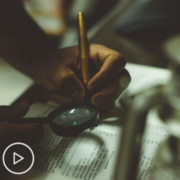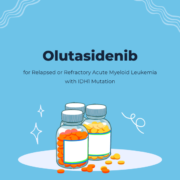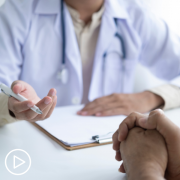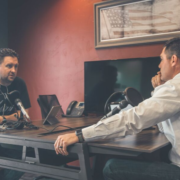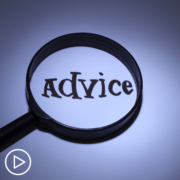Assessing Credible AML Resources and Identifying Research Scams
Dr. Daniel Pollyea shares advice on vetting credible acute myeloid leukemia (AML) resources and provides words of warning related to potential clinical trial scams.
Dr. Daniel Pollyea is Clinical Director of Leukemia Services in the Division of Medical Oncology, Hematologic Malignancies and Blood and Marrow Transplant at University of Colorado Cancer Center.
See More From The Fact or Fiction? AML Series
Related Resources

|
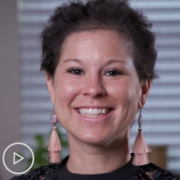
An AML Story: Casey Shares Her Stem Cell Transplant Experience |

|
Transcript:
Ross:
You know, when you find out something like this, your tendency might be to jump on the web and start searching for AML. How do you vet those sources that you look at? How do you figure out that their – what would be a sign that they’re bogus sources?
Dr. Pollyea:
Yeah. I mean, I think this field is so rapidly changing and the treatment that we have, that I would, for the most part, assume that what you’re finding on the web is not relevant and is not an up-to-date resource. So, the resources that I listed, the NCCN, UpToDate, the Leukemia & Lymphoma Society, I should mention.
A very important resource that has up-to-date information, and they have even phone numbers for patients and their families to call to get connected with the proper people in a particular city, so that is a really important resource. But I’d be really, really cautious about what you find on the internet because things are changing so fast in this field. There’s a lot of outdated and misinformation on the internet.
Ross:
Well, then there’s outright scams. One of the things you mentioned before we went on is be cautious if someone’s asking you to put money upfront, or if it’s a nonmedical facility. What are some things that people should watch out for?
Dr. Pollyea:
Yeah. So, one of the things that is so important in our area is clinical trials and participating in clinical trials. Patients who opt to do this and receive experimental therapies can sometimes get the treatment of the future, get a drug that’s not currently available through the FDA, but may have a lot of promise.
And this is the way that we fight this disease. We’ve recently had an onslaught of approvals for AML and that’s because the patients being willing to participate in sanctioned clinical trials. So, participating in a sanctioned clinical trial is crucial, and it’s always a recommendation of all leukemia doctors.
When you participate in a conventional clinical trial, you’re asked to sign a consent form that explains what you’re doing and why. There is a confirmation that this has been vetted by an institution’s regulatory board that is prioritizing the safety and well-being of you, the patient. This has been approved by the FDA as a clinical trial. Nobody would ever ask you to pay money. That’s not ethical to participate in a clinical trial. Insurance covers whatever standard of care. And the clinical trial covers anything that isn’t.
So, if you find yourself in a situation where you’re not being asked to sign a consent form, where a clinical trial has not been reviewed by a regulatory board, where your doctor is not a leukemia specialist, where the FDA has not sanctioned the treatment, all of those are alarm signs.
Because there are people out there that are preying on patients in a desperate situation, a very difficult time in their life, and giving them sort of false hope and leading them down paths that are not legitimate.
One easy thing to do to sort of check to see if a clinical trial is legitimate is to go onto clinicaltrials.gov.
This is a resource set up by our national healthcare system that now feeds in every legitimate clinical trial from all over the world, needs to be registered on clinicaltrials.gov. So, if you can’t find your clinical trial on clinicaltrials.gov, I would have a lot skepticism and caution about that.

